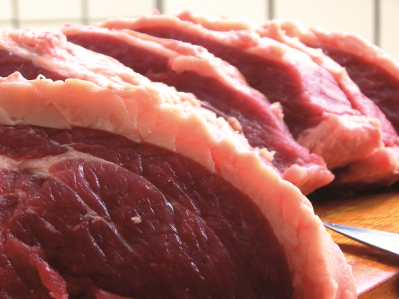News
Investigation into industry-wide country of origin fraud in pork supply chain

An investigation by Farmers Weekly has discovered that an unnamed food manufacturer was – up until the end of 2020 – passing off sometimes thousands of tonnes of foreign pork as British. The manufacturer has also been accused of regularly “washing” hams that were visibly off, or mixing rotting pork with fresh product for further processing.
The accused business supplies meat to a number of leading supermarkets across the country, as well as schools and hospitals. The meat has also been used in products such as ready meals and sandwiches sold in Tesco, Asda, Co-op, Morrisons and Mark & Spencer.
It is understood that staff at the company reported these revelations that lead to the investigation. Former staff accused bosses of threatening to take their jobs if they didn’t comply with the fraudulent practices.
The company was also accused of falsifying sampling paperwork on test for food bugs such as listeria and E coli. One source claimed that staff would actively hide rotting and out of date meat on site from visiting auditors.
Criminal practices
There has been no suggestion that any of the manufacturer’s customers were aware of the alleged criminal practices.
Darren Davies, head of the Food Standards Agency’s (FSA’s) National Food Crime Unit said it is carrying out a criminal investigation into how a supplier was allegedly providing products labelled as British when they were in fact sourced from elsewhere.
“This is a complex and live investigation and we are looking into all new lines of enquiry with our partner organisations, including any potential food hygiene breaches at the premises,” he added. “If any evidence of a food safety risk is found, then necessary action will be taken.
“The FSA advised retailers last year to check their cooked meat supply chain and to apply extra due diligence in their checks. We don’t give out these alerts without a reason. We will not name the supplier while we painstakingly gather evidence to support our investigation so as not to prejudice any possible future action by the courts.
“As a national regulator, we are the last line of defence. At a time when cost pressures and other challenges mean the risks of food fraud might be increasing, it is vital that everyone involved in the food system remains extra vigilant to ensure that food is safe and what it says it is.”
Food fraud vigilance
Nick Allen, British Meat Processors Association chief executive, said the investigation was a sign that producers shouldn’t be complacent when it comes to issue of food fraud in their supply chains.
“The industry has come a long way since Horsegate 10 years ago but this latest issue highlights the fact that nobody should be complacent,” Allen explained. “Criminal activity will always find new ways to beat the system.
“This issue also highlights the need for the NFCU and industry to work more closely together and share intelligence with a greater emphasis on prevention rather than prosecution.
“There also needs to be greater use of technology and data to provide checks and balances. It is in no one’s interest that we have stories like this hitting the headlines and it undermines all the good and responsible work that has gone on and continues to go on in the industry.
Government controls on FSA
In light of the investigation into such a serious case of food fraud, the Government is now considering whether or not it needs to tighten its control over the FSA.
Speaking at the House of Commons Yesterday (30 March), secretary of state for the Department for Environment, Food and Rural Affairs (Defra) Therésè Coffey said she would look into bringing the FSA under her department’s control.
















